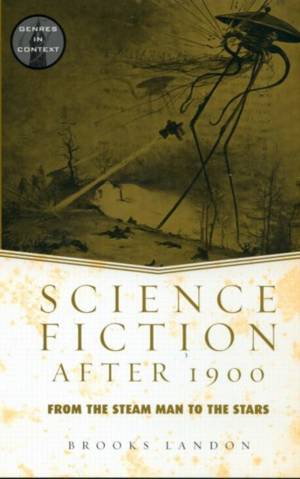
Je cadeautjes zeker op tijd in huis hebben voor de feestdagen? Kom langs in onze winkels en vind het perfecte geschenk!
- Afhalen na 1 uur in een winkel met voorraad
- Gratis thuislevering in België vanaf € 30
- Ruim aanbod met 7 miljoen producten
Je cadeautjes zeker op tijd in huis hebben voor de feestdagen? Kom langs in onze winkels en vind het perfecte geschenk!
- Afhalen na 1 uur in een winkel met voorraad
- Gratis thuislevering in België vanaf € 30
- Ruim aanbod met 7 miljoen producten
Zoeken
€ 80,95
+ 161 punten
Uitvoering
Omschrijving
First published in 2003. Brooks Landon analyses science fiction not as a set of rules for writers, but as a set of expectations for readers. He presents science fiction as a social phenomenon that moves beyond literary experience through a sense of mission based on the belief that SF can be a tool to help you think. He offers a broad overview of the genre and the stages through which it has developed in the twentieth century from the dime store novel through the New Wave of the '60s, the cyberpunk '80s, and soft agenda SF of the '90s. The writers he examines range for E. M. Forster and John W. Campbell to Philip K. Dick and Ursula K. Le Guin. He also examines the large body of criticism now devoted to the genre and includes a bibliographic essay and a list of recommended titles.
Specificaties
Betrokkenen
- Auteur(s):
- Uitgeverij:
Inhoud
- Aantal bladzijden:
- 286
- Taal:
- Engels
- Reeks:
Eigenschappen
- Productcode (EAN):
- 9780415938884
- Verschijningsdatum:
- 11/10/2002
- Uitvoering:
- Paperback
- Formaat:
- Trade paperback (VS)
- Afmetingen:
- 152 mm x 220 mm
- Gewicht:
- 371 g

Alleen bij Standaard Boekhandel
+ 161 punten op je klantenkaart van Standaard Boekhandel
Beoordelingen
We publiceren alleen reviews die voldoen aan de voorwaarden voor reviews. Bekijk onze voorwaarden voor reviews.









